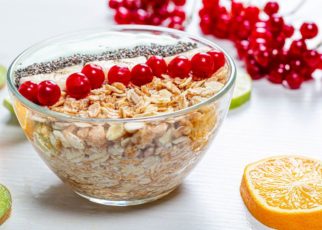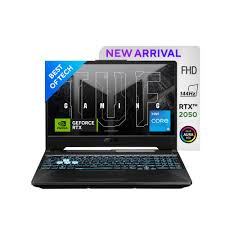If you often face stomach pain or cramps, you must not ignore the symptoms; it could happen because of SIBO. Now some of you might be wondering that what SIBO is all about? SIBO is the small intestinal bacterial overgrowth that can harm your intestinal tract and gut health. Experts suggest that following a SIBO diet can provide instant relief from stomach cramps and indigestion.
Various factors can cause you SIBO, including indigestion, consumption of sugar, high carb foods, and other medical conditions or diseases.
You can easily treat SIBO by following antibiotics combined with a low-FODMAP diet, including high dietary fibers, low sugar content food, easily digestible, and other high nutritive food meals.
This article offers you almost all the information that you would require for the treatment of SIBO.
What is SIBO?
SIBO stands for small intestine bacterial overgrowth, which is a severe condition affecting the small intestine. It occurs when the bacteria start growing inside the small intestine and causes severe pain and diarrhea. This, in turn, causes malnutrition as the bacteria inside the intestine starts absorbing the body’s essential nutrients.
Various symptoms can show that you are suffering from SIBO. Read further to know more about SIBO and its diet.
SIBO Symptoms
SIBO mainly affects the health of the gut that can create many health-related problems. It may include-
- Bloating
- Stomach pain after eating
- Cramps
- Weight loss
- Weakness
- Diarrhea
- Constipation
- The regular feeling of fullness
- Indigestion
- Gastric issues
If you are consistently facing any of the above signs, then it may be possible that you are suffering from small intestine bacterial overgrowth. If you don’t treat it at an early stage, it can cause severe issues. Check out the causes of SIBO to treat it at an early stage.
Causes of SIBO
Sometimes people confuse about SIBO and consider it as a normal stomach ache. But let us tell you the fact that SIBO is not a normal cramp; it can be harmful if not treated well at an early stage. SIBO can be caused due to several factors such as-
When Small bowel’s pH changes
Small bowel faces anatomic abnormalities.
When the immune system is not functioning well
Malfunctioning of the small intestine’s muscular activity means bacteria and food aren’t removed from the organ.
SIBO can also occur due to the existence of various other medical conditions, which include
- Celiac disease
- portal hypertension
- nerve damage
- viral gastroenteritis
- stomach bug
- certain gastric bypass procedures
- cirrhosis
- Crohn’s disease
- Low stomach acid levels or hypochlorhydria
- surgeries that cause adhesions or strictures
- Gastroparesis
- Disturbed bowel syndrome
SIBO can also occur due to the other risk factors, including severe diseases and other medical conditions.
SIBO Risk Factors
If a person has any chronic surgery of medical condition, it may severely affect the gastrointestinal tract. This, in turn, can put you at the risk of SIBO. Some plentiful chronic conditions or diseases can cause you SIBO, including
- HIV
- Crohn’s disease
- hypothyroidism
- medications that slow down the gut, such as narcotics
- scleroderma
- diabetes
- Parkinson’s disease
SIBO can become severe if not treated at an early stage. You can also treat it on your own following a strict SIBO diet and nutrition. You can also combine the antibiotic dosages and balanced diet for the treatment of SIBO.
Now, most of you might be wondering about the same question that what SIBO diet is all about. Read more to know about the SIBO diet and foods you must eat to avoid stomach cramps and pain.
What is the SIBO Diet?
SIBO diet is the best diagnosis that can help you cure the pain caused by the overgrowth of bacteria inside your intestine tract. It aid you provide instant relief from inflammation; irritation occurs inside your gut.
Most experts suggest that you must avoid consuming sugar for instant relief from the signs of SIBO. They also believe that consuming low carb or easily digestible foods can solve half of your problem. When you consume easy digestible and high dietary fiber foods, it can help you promote digestion, improved metabolism, and avoid gastrically, bloating, and other stomach issues. Also, a diet change can also prevent the overgrowth of bacteria inside your intestinal tract and prevent malnutrition by promoting improved absorption of nutrients and essential minerals.
Here is the list that can help you decide what foods you must choose or avoid to control the stomach pain or cramps caused by the SIBO.
Foods to Avoid
Most nutritional experts have suggested adopting a low-FODMAP diet for the treatment of irritable bowel syndrome or IBS. And it is scientifically proven that if a person is suffering from IBS often suffers from SIBO too.
You must avoid foods that are rich in carbs and are not easily digestible. You must opt for dietary fiber and whole-grain foods for a healthy intestinal tract and smooth digestion.
When you start eliminating FODMAP’s form your SIBO diet, you should shift your focus on the main elements, which includes-
- Lactose, a sugar molecule in dairy products
- Polyols, a sweetener or a sugar alcohol
- Fructose, simple sugars commonly found in vegetables and some fruits, agave nectar, and honey
- Galatians, a compound found in legumes
- Fructans, a sugar compound found in gluten products such as vegetables, fruits, and prebiotics.
Here are the foods that consist of higher amounts of FODMAP, which you must avoid to remain safe from the SIBO ache and pain. It includes-
- barley
- rye
- acacia honey
- onions
- sausage
- grains
- peas
- flavored yogurt
- butternut squash
- sweetened cereals
- ice cream
- cauliflower
- artichokes
- dried fruits
- apples
- agave nectar
- high-fructose corn syrup
- soft drinks or soda
- garlic
- asparagus
- beans
If you successfully eliminated above-mentioned foods from your diet for some days, you will probably get to see the positive results. There are certain foods that you must eat to avoid stomach inflammation. Read to know more about those foods that you can eat during the SIBO.
Foods to Eat
The above food list might be restrictive to some of you, but it is only for the earliest treatment of the SIBO. But you can still enjoy the food items that don’t come under FOBDMAP’s. A SIBO diet majorly focuses on non-sugar and high dietary fibrous foods.
There are plenty of foods that consist of low FODMAPs in small servings. Here is the list of foods ideal for the consumption, which includes-
- olives
- fish
- eggs
- spaghetti squash and summer squashes
- rice or gluten-free noodles
- peanuts
- quinoa
- seeds
- oatmeal
- meat
- pumpkin
- crackers, gluten-free
- leafy greens
- potatoes
- carrots
- unsweetened cereal
- some fruits such as grapes, oranges, blueberries, and strawberries
- broccoli
You must prepare a diet chart to support your everyday low carb meal. Make the right choice of easily digestible foods, high in nutrients and rich in fibers and whole grains content.
Alternative Support of SIBO Diet
Experts suggest taking antibiotics if we talk about alternative support if you are facing mild symptoms of SIBO. However, limiting lactose, sugar, and other high carb foods reduces the overgrowth of bacteria inside the intestinal tract.
You can also combine antibiotics and probiotics for the effective treatment of SIBO.
You can purchase probiotic supplements or consume rich probiotic food for a healthy intestinal tract. Drinking plenty of water along with the SIBO diet help you ease digestion and reduce pain or cramps.
But we suggest taking a doctor’s help before purchasing any supplement or medicine for the SIBO treatment.
Final words
You can easily come out of the small intestine bacterial overgrowth by making some slight changes in your current lifestyle. Following a SIBO diet, you can instantly cure stomach pain or cramps.
You must eat low carb foods, dietary fibers, and natural sugar drinks for smooth digestion and a healthy gut. Check out the above-mentioned symptoms to cure it at an early phase. If your symptoms are mild, then take antibiotics along with a balanced diet for the treatment. We suggest you go for a medical check-up if you are facing severe stomach pain.
Comment down below if you found this article helpful.





